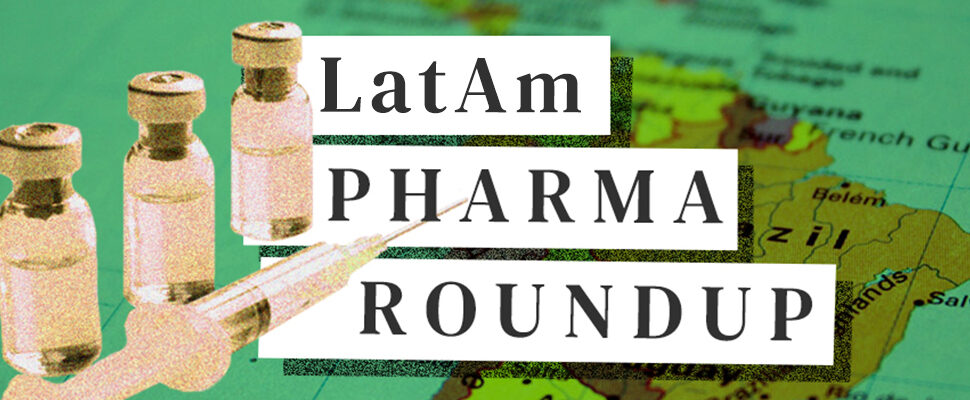A roundup of some of the latest stories coming out of Latin American pharma and healthcare, including Merck’s new distribution centre in Brazil; the region’s record dengue surge; Roemmers Laboratory’s acquisition of 30% of Argentina’s Tuteur, and Urufarma’s new manufacturing facility in Uruguay.
Merck to open new distribution centre in Brazil for Life Science sector (Pharmaceutical Business Review)
Merck has announced the opening of a new €20m ($21.7m) distribution centre in Cajamar, São Paulo, Brazil, for serving its Life Science customers in the region. The facility, which will be operational this month, is designed to meet the increasing demand for life science products in the region.
Spanning 13,000m2, the centre is twice the size of its another site in Cotia, indicating a significant expansion of Merck’s capabilities in Brazil.
Record dengue surge in Latin America spurs a warning for preventative measures (NBC News)
A record surge in dengue cases throughout Latin America and the Caribbean prompted the head of the Pan American Health Organization to warn of the need for proactive measures to curb the virus that is transmitted by mosquitoes.
PAHO Director Dr. Jarbas Barbosa said in a press briefing Thursday that as of March 26, the region had seen more than 3.5 million cases of dengue and more than 1,000 deaths.
M8 Pharmaceuticals signs an exclusive agreement with SERB Pharmaceuticals to bring Voraxaze to Latin America (PR Newswire)
M8 Pharmaceuticals, an Acino company and SERB Pharmaceuticals, a global specialty pharmaceutical company, are collaborating to bring an important drug for cancer patients to Latin America. Under the agreement, M8 will register, market and commercialize SERB’s supportive oncology product Voraxaze (glucarpidase) in Latin America
Voraxaze is a carboxypeptidase that reduces toxic plasma methotrexate concentration in adults and children with delayed methotrexate elimination or at risk of methotrexate toxicity. Only Voraxaze can lower methotrexate (MTX) levels by ≥97% in 15 minutes, reducing the risk for severe toxicities and death.1-3 Voraxaze is approved in the US, where it has been available since 2012, as well as in Europe and Japan. In the US Voraxaze is included in the National Comprehensive Cancer Network guidelines.
Increases of up to 4.5 per cent in the price of medicines are already in force in Brazil (Folha da Cidade, in Portuguese)
The increase of up to 4.5% in the price of medicines came into force on March 31. The percentage was set by the council of the Medicines Market Regulation Chamber based on the IPCA (National Broad Consumer Price Index) for the period from March 2023 to February 2024.
This year, the maximum price increase was equal to the inflation index and should affect around 13,000 products. The increase was already estimated by Sindusfarma (Pharmaceutical Products Industry Union).
Roemmers buys 30% of a national laboratory and seeks to extend its portfolio (El Cronista, in Spanish)
Roemmers Laboratory expands. It has bought 30% of the national pharmaceutical company, Tuteur. The alliance is key for the company managed by Eduardo Macchiavello, which seeks to expand its product portfolio not only in Argentina but also in the region and worldwide.
Tuteur has been operating in the Argentinean market since 1972 and is focused on the high-cost segment. The scoop, which was made public by Pharmabiz, would have involved an outlay of more than u$s 80 million, according to industry players.
Russo convened the ministers of health from all over the country (Argentina.gob.ar, in Spanish)
Within the framework of the Federal Health Council (COFESA), the National Minister of Health, Mario Russo, convened the heads of the health portfolios of the country’s 24 jurisdictions with the aim of analysing the main challenges of the health agenda and advancing joint actions.
“The idea is for this to be a forum for debate and for us to present the key issues that we believe are fundamental at this stage of Argentina and of the health system,” said Russo at the start of the meeting, adding: “We are absolutely open to listening to everyone and to defining a priority agenda.
Megalabs acquires Croma-Pharma, Brazil (Pharmabiz.net, in Spanish)
Latin American group Megalabs, owner of Poen Laboratories; the former Raymos, Gema Biotech, Dromex Biotech and Max Vision, is growing in the region through acquisitions. Now the company has announced the purchase of Croma-Pharma in Brazil, an Austrian firm specialising in aesthetic products.
Thus, the company seeks to enter this segment of minimally invasive treatments. Croma-Pharma’s portfolio includes botulinum toxin, fillers, polydioxanone (PDO) threads, biostimulators and complementary skin care products.
Urufarma opens industrial complex, Uruguay (Pharmabiz.net, in Spanish)
Urufarma will hold a ribbon cutting ceremony on Thursday 18 April. The laboratory, which is part of the Elea group, will inaugurate an industrial complex in Carrasco, on the outskirts of Montevideo, Uruguay, according to El País.
The centre consists of three production plants. One will manufacture oncology drugs, another will produce non-segregated drugs, and the third will produce hormones. In total, according to the article, the company has made an investment of around u$s 36 million.



